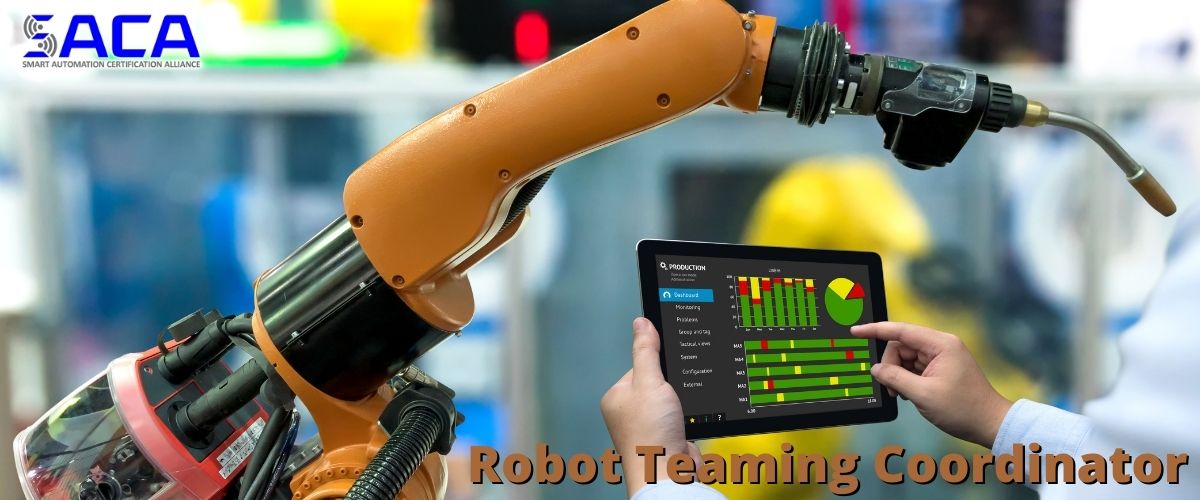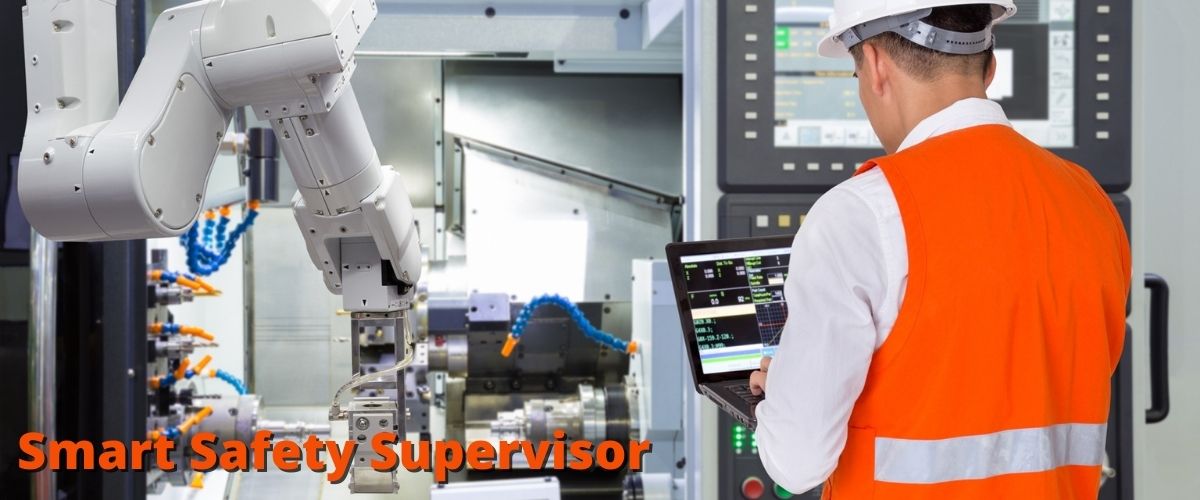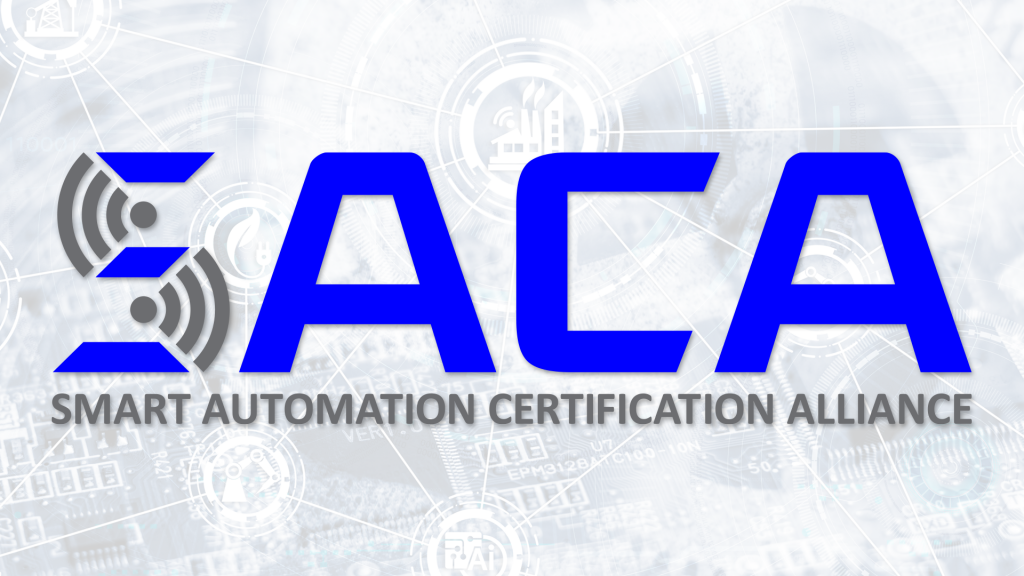Top 5 Future Smart Automation Careers in Manufacturing
Oh, how five years can change things.
Turning the clock back all the way to 2015, gasoline had fallen under $3 nationally for the first time in four years, NASA was confirming the presence of water on Mars, and the smash-play Hamilton was the hottest ticket on Earth (you know, back when we could still go to concerts…).
Even manufacturing of those times now feels slightly antiquated. Promises of big data driving efficiency and predictive maintenance technologies, which were introduced on a national scale in 2015, are now commonplace around Smart Factories. Today, more efficient strategies are practiced by companies, leading to a manufacturing boom – another prediction-come-true from 2015.
While we could spend time reminiscing about the “ol’ days”, innovation doesn’t take a break. With more products being created daily than we’ve ever experienced before, it only makes sense for manufacturing to keep focused on improving production for future endeavors.
And it begs the question: where do we see manufacturing five years from now? Based on its history, changes are expected, according to Deloitte. Specifically, they predict several important themes will be reflected in these changes, including:
- Putting Humans in the Loop: Organizations are working harder to keep humans in the loop, such as rethinking work architecture, retraining people, and rearranging the organization to leverage technology. The hope is to not only eliminate routine tasks and cut costs, but create value for the customers (and meaningful work for the employees).
- Expanding Digital and “Soft” Skills: Despite the rise of automation, and technology replacing many mundane tasks, manufacturing requires human workers to ensure that everything runs smoothly. The essential human skills deemed most useful over the next decade include critical thinking, creativity, and people management.
- Leveraging the Digital Toolbox: Manufacturing workers are becoming more reliant upon digital tools, such as collaboration platforms, work-based social media, and instant messaging, to effectively complete their work.
In addition to these themes, Deloitte also anticipates five future skillsets that each manufacturing worker should possess, including being proficient in: Technology / Computer, Emerging Digital Technologies, Programming for Robots / Automation, Working with Tools and Technology, and Critical Thinking.
So how can these themes and skills work in combination to create future jobs?
According to Deloitte:
“As digital transformation and the Fourth Industrial Revolution continue to redefine manufacturing jobs of the future, leaders and workers alike need to embrace a work environment that is expected to blend advanced technology and digital skills with uniquely human skills, to yield the highest level of productivity. Understanding how work might change can help the industry as a whole prepare for a future that promises to be transformative.”
With that transformative future comes a new onslaught of smart careers – many of which have been created as a direct correlation to the ever-changing industry. In this article, we will highlight five of the jobs that Deloitte has tabbed as the most promising future smart automation careers in manufacturing, as well as what that position could potentially look like.
Job #1 – Digital Twin Engineer

SUMMARY: A digital twin engineer creates a virtual representation of both the physical elements, as well as the dynamics of how an IoT-connected product operates and interacts. Simply put, a digital twin engineer makes it possible to virtually see inside any physical asset, system, or structure to optimize design, monitor performance, predict maintenance, and improve the overall experience.
Used throughout a wide range of industries, digital twin engineers rely upon their engineering tooling to integrate necessary digital elements to produce the high-quality product. In addition, they act as a working link between the product twin and the performance twin, which can help enhance collaboration with customers, accelerate innovation, design smarter products, and create new services.
RESPONSIBILITIES: Using 3D software and simulations, a digital twin engineer will create digital twins to measure product performance throughout a variety of conditions. The insights discovered through the data help design new products and business models. Engineers also use machine learning, real-time usage, and performance data to optimize product performance and service.
SKILLS NEEDED: In creating virtual replicas of major industrial products, as well as helping companies predict and respond to customer problems using real-time data analysis, digital twin engineers need to be well-versed in simulations, analytics, and software development. Systems engineering, as well as research and development, are also critical.
Job #2 – Smart Factory Manager

SUMMARY: A smart factory manager is a jack-of-all-trades, so to speak. From production and quality, to IT and cyber responsibilities, a smart factory manager takes on an expanded, and often times unique, role of integrating advanced manufacturing, securing connectivity, and understand data analytics to drive a new level of overall equipment effectiveness, or OEE.
The goal of the smart factory manager is to identify data patterns that can help predict quality issues, as well as direct actions in response to these insights. In addition, they will leverage predictive maintenance analytics to identify issues before they happen, and direct preventative maintenance to address future issues.
RESPONSIBILITIES: A smart factory manager must be able to identify and aid in the addition of advanced technologies that enable self-optimization. They must be able to build a variety of automated manufacturing capabilities, such as robot cutting, 3D printing, and more. Finally, they are responsible for managing the installation, operations, and maintenance of all levels of the smart factory solutions “stack” that delivers continuous connectedness and ensures cybersecurity protocols are followed.
SKILLS NEEDED: Being skilled in applied technology, automation, and connectedness are a must for smart factory managers. In addition, operational excellence, deep learning, and innovation are also key to finding success in the field. Digital prototyping and client management are also plusses.
Job #3 – Robot Teaming Coordinator

SUMMARY: With increased automation comes a larger need for robots. And robots, like any other industrial component, needs to be able to effectively perform its predetermined tasks. As a Robot Teaming Coordinator (RTC), it is their task to oversee robots that interact with humans to enable a human rapport with robots, ensuring optimal human-machine interactions.
Generally, the RTC is responsible for monitoring robot performance, and giving feedback to programmers to perfect robot value. However unlike robot programmers, a robot teaming coordinator are often not experts in programming languages, but should have the knowledge to understand how robots are supposed to behave in work environments.
RESPONSIBILITIES: In addition to observing and evaluating robot performance, an RTC is responsible for sharing its feedback with robot programmers, recommending areas for improvement. They will train human team members to help them work more collaboratively with robots, as well as work in tandem with robot coordinators from other departments to identify opportunities to enhance productivity. Finally, all of those results are delivered against key performance indicators to view overall customer experience, improvements in productivity, and more.
SKILLS NEEDED: An RTC needs to be proficient in robot behavioral analysis by enabling a collaborative human-robot working environment, which applies a mixture of digital, social, and human skills to help humans and robots leverage each other’s strengths and improve productivity. This means a robot teaming coordinator needs to be well-versed in human-machine collaboration, as well as robot management.
Job #4 – Smart Safety Supervisor

SUMMARY: In most workplace environments, safety is the number one concern. That’s no different in a Smart Factory – only this time, it’s the Smart Safety Supervisor who is responsible for overseeing proper safety procedures are being utilized. A Smart Safety Supervisor works with operational, logistics, and technology teams to ensure safety, as well as finding new synergies that can improve the safety of workplaces.
With Smart Factories dealing with autonomous equipment, unmanned drones, and advanced materials, a Smart Safety Supervisor needs to be fluent in advanced technologies, and match those applications – such as smart helmets or augmented reality (AR) glasses to help create a safe and efficient work site. They will also use their broad knowledge of regulations, Environment, Health & Safety (EHS) standards, and available technologies to help companies develop technology implementation road maps, or help leverage the digital twin of a construction site to oversee health and safety of workers and machines.
RESPONSIBILITIES: When it comes to keeping workers safe, a Smart Safety Supervisor has a laundry list of responsibilities. From identifying new technologies to meet set safety targets, to formulating safety procedures and plans to reduce potential safety hazards, a Smart Safety Supervisor will be responsible for taking all of the necessary steps to ensure workplace safety. The job also includes incorporating specialized risk management principles between machines and humans, supervising safety specialists, and acting as a field safety inspector on incident investigations.
SKILLS NEEDED: The most necessary skill is having an advanced working knowledge of construction safety, safety management systems, and occupation and health regulations. Smart Safety Supervisors are skilled in EHS, workplace inspection, and risk assessment, as well as understanding digital tools and technologies to aid in keeping everyone safe. Finally, having experience developing and implementing multiple health and safety programs for various projects is a plus.
Job #5 – Smart QA Manager

SUMMARY: A “smart quality assurance (QA) manager” manages product quality using digital technologies. That means a smart QA manager will oversee an ecosystem of machines and work center sensors, artificial intelligence (AI), and virtual reality (VR) support technologies to proactively detect quality escapes and machine maintenance issues, as well as develop solutions to address those root causes of quality issues.
From developing requirements for AI and machine-learning (ML) algorithms that identify products defects as early as possible, to reducing the number of defects per part produced, the main task of a smart QA manager is to minimizes production downtime, and maximize productivity by reducing manual inspection.
RESPONSIBILITIES: A smart QA manager will be looked upon to work with the facility manager to develop and maintain the production schedule, as well as plotting historical data to develop predictive quality controls and detection algorithms. In addition, they will be responsible for conducting quality issues root cause analysis, providing corrective actions, and identifying new technologies to incorporate into QA systems.
SKILLS NEEDED: An experienced QA manager is trained in leveraging smart technologies to reduce the number of defects per part produced, with goals to enhance overall productivity. Other useful skills include operational excellence, innovation, automation, and digital prototyping. Like all future smart positions, it also requires a passion for deep learning.
Need Help Certifying Your Workforce for Smart Automation? Consider SACA!

With all of these future careers on the horizon, industry-endorsed Industry 4.0 certifications will become even more valuable. That’s why the Smart Automation Certification Alliance (SACA), a non-profit organization, has made it our mission to develop and deploy Smart Certifications for a wide range of industries.
Thanks to the help of our partners, SACA has created certifications that are industry-driven, developed for industry by industry. They are developed through a rigorous process that begins with the creation of truly international skill standards, endorsed by leading experts in Industry 4.0 technologies throughout the world.
SACA’s Smart Automation certifications use a modular structure to enable them to fit a wide range of individual needs, industries, and educational environments, and are available in three categories – Associate, Specialist, and Professional. Each certification is stackable, allowing individuals to start with one certification and add other certifications to customize their documented skills.
All SACA certifications are occupationally focused, so they prepare individuals for specific careers in the world of Industry 4.0. If you would like more information into SACA’s world-class Smart Certifications, please visit our website!
- Published in News
Macomb Community College Joins SACA to Provide Students with Industry 4.0 Certifications
LOUISVILLE, KY—AUGUST 17, 2020
The Smart Automation Certification Alliance (SACA) is pleased to announce that it has recently entered into an agreement with Macomb Community College and ATS Midwest to support the college’s efforts to align its education and training to meet the realities of Industry 4.0. Students completing Macomb’s advanced manufacturing programs will soon earn SACA certifications, giving them a competitive advantage in today’s job market.
Today’s students face a far different world of advanced manufacturing than existed a decade ago. While automation technologies have been commonplace for many years, the Internet has brought about a convergence of new “connected” technologies that is revolutionizing how products are made.
Known as the Fourth Industrial Revolution or Industry 4.0, this latest disruption of the advanced manufacturing world is resulting in reduced downtime and increased quality, productivity, and overall efficiency in industries of all kinds thanks to advanced technologies that make up what is known as the Industrial Internet of Things (IIoT).
IIoT technologies include such things as advanced robotics, machine learning, artificial intelligence, autonomous vehicles and machines, cloud-based data analysis, and cybersecurity. As companies increase their use of networks and Internet technologies, they are connecting more devices, from smart sensors to smartphones.
As a result, these highly-connected systems require new skills in almost every occupation. To succeed in an Industry 4.0 environment, current workers and today’s students must learn to interact with software, data, networks, and smart devices.
While there are many certifications available today that address isolated competencies, from machining to maintenance and information technology (IT), SACA certifications are different. SACA’s Industry 4.0 certifications certify “connected systems” skills that address the integration of the many types of advanced manufacturing technologies with Industry 4.0 technology.
SACA’s Industry 4.0 certifications have been developed for industry by industry through a rigorous process that began with the creation of truly international skill standards. These standards have been endorsed by leading experts in Industry 4.0 technologies around the world.
Working with forward-thinking institutions like Macomb will enable SACA to accomplish its vision to provide highly-affordable, accessible Industry 4.0 certifications that significantly increase the number of individuals who possess the skills represented by these credentials.
The result will be an increasing number of students prepared to be successful in an Industry 4.0 world, as well as more companies that have the highly-skilled workers they need. Don Hutchison, Macomb’s Dean of Engineering and Advanced Technology, agrees:
In southeast Michigan, industry already needs employees who understand how advanced manufacturing systems integrate. At Macomb, we are listening to industry and creating training for individuals and industry that meets the challenges and opportunities of Industry 4.0. Arming Macomb’s graduates with SACA certification signifies to employers that they are prepared to successfully navigate the complex, integrated nature of today’s manufacturing environment.
Fortunately, Macomb also enjoys the support of local industry. Tom Kelly, Executive Director and CEO of Automation Alley, Michigan’s leading manufacturing and technology business association and Industry 4.0 knowledge center, supports Macomb’s vision:
It is encouraging to see Macomb Community College commit to Industry 4.0 training, which will help to ensure industry receives graduates with employable skills. Today, technology is moving at an accelerated pace which requires a new set of working skills. If our state is to keep pace and maintain a global leadership position in manufacturing, we must transform and continuously develop our talent pipeline.
SACA looks forward to a long relationship with Macomb as they, together with industry partner ATS Midwest, begin a thorough review of all of the college’s advanced manufacturing programs to ensure SACA certification requirements are incorporated into the programs’ core curricula. The parties will also be reaching out to local industry to confirm that SACA certification requirements reflect the skills needed by industry. For more information about SACA and how its Industry 4.0 certifications can prepare your students for the jobs of the future, visit SACA.org or contact SACA Executive Director Jim Wall.
- Published in News
Indiana Governor’s New Initiative Offers Free SACA Silver Certifications for Hoosiers
During Indiana Governor Eric Holcomb’s June 5, 2020 press conference, a new state initiative was announced that will offer 10,000 free credentials to Indiana residents that have been dislocated from their jobs due to the COVID-19 pandemic. The Smart Automation Certification Alliance (SACA) is one of the organizations offering credentials to displaced Hoosier at no cost. SACA’s certifications are task-based and nationally recognized in preparing individuals for rewarding careers working with advanced manufacturing and Industry 4.0 technologies.It’s no secret the immense role that Industry 4.0 is expected to play in the future of industrial manufacturing.
These courses can be taken online and feature virtual simulation of industrial applications, which make them ideal for preparing users for the workplace. The online delivery also allows users to practice social distancing guidelines to help prevent the spread of Coronavirus.
Ivy Tech will coordinate enrollment of new students while Amatrol and Aidex will help to promote this opportunity to displaced Indiana residents seeking a new career path. Amatrol will also provide free access to its Learning Management System (LMS) for students enrolled in this program.
When a student completes one of the six courses, they will be eligible to sit for the associated SACA Silver Credential. SACA Silver Credentials are completed solely online while Gold Credentials involve hands-on skill demonstrations. Students are eligible to earn all six SACA Silver credentials.
People interested in these opportunities can visit YourNextStepIN.org, which is part of Indiana’s Rapid Recovery for a Better Future initiative. Lubbers said, ““Visitors to the site can talk to a real person to answer questions and help them determine the right path forward and the training options that will help them achieve their goals. These partners and tools help to connect Hoosiers to opportunities — some that already exist — and we will continue to build on these connectors in the weeks and months ahead.”
The free courses and associated SACA Credentials are as follows:
Production Operations Technician
- Certified Industry 4.0 Associate I (C-101): Students will study Industry 4.0 concepts, safety, quality, technical drawings, machine operation and maintenance, and hand tools.
- Certified Industry 4.0 Associate II (C-102): Students will study manufacturing systems performance, mechanical and fluid power systems, programmable controller systems, CNC and additive manufacturing, system communications, and mechatronics.
Multi-Skill Maintenance Technician
- Electrical Systems 1 (C-201): Students will study electrical system safety, electrical schematics and diagram, taking electrical measurements using a digital mustimeter (DMM), combination circuits, electrical circuit troubleshooting, and inductive and capacitive circuit analysis.
- Electric Motor Control Systems 1 (C-202): Students will study electric motor safety, ladder logic schematics, how to properly ground connections, transformer selection and installation, how to connect and operate a 3-phase motor, and how to connect and operate a variety of electric motor circuits including manual motor, 2/3 wire magnetic motor starter, reversing motor control, hands-off-auto motor control, and basic timer control.
- Motor Control Troubleshooting 1 (C-204): Students will study how to troubleshoot motor control components, use a clamp-on ammeter to measure motor current, and troubleshoot a variety of motor control circuits and an AC VFD motor control system.
- Pneumatic Systems 1 (C-209): Students will study pneumatic system safety procedures, pneumatic schematics interpretation, how to connect and adjust pneumatic supply lines, how to start up and shut down a reciprocating air compressor, how to connect and operate basic pneumatic circuits, how to monitor system operation, pressure and force, and how to perform basic system servicing.
- Published in News

The Importance of a Smart Automation Certification
- Published in News
- 1
- 2





